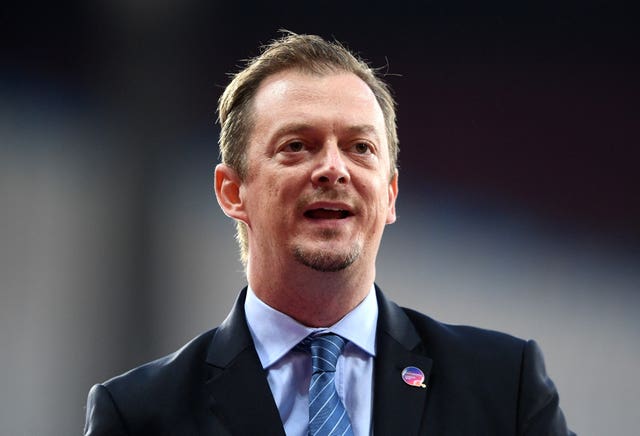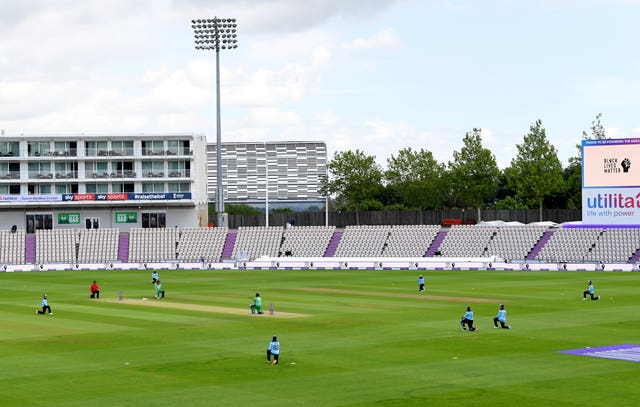International Paralympic Committee president Andrew Parsons is hopeful the Tokyo Games can signal the start of a new post-coronavirus era.
The pandemic resulted in the event being put back 12 months and the countdown is back on for the Japanese capital to host the world’s best.
In exactly one year – August 24 – the Paralympic Games are set to get under way and run until September 5 while the Olympic Games are scheduled to begin on July 23 and conclude on August 8.
All this depends on the state of the world this time in 2021 and whether coronavirus remains or a vaccine has been found.
“It is always on the table because no-one knows what the world will look like in one year,” Parsons told the PA news agency.
“We need to make decisions, not on the eve of the opening ceremony – we need to make some decisions a few months in advance.
IOC, IPC, Tokyo 2020 Organising Committee and Tokyo Metropolitan Government announce new dates for the Olympic and Paralympic Games Tokyo 2020 https://t.co/QITtT5dcl8 pic.twitter.com/DHi4u74ZXa — Olympics (@Olympics) March 30, 2020
“We don’t have a date yet, we don’t have a date where we need to make a decision because it depends on how the pandemic develops and if there is a vaccine, if there are more effective ways of controlling the virus or if the measures applied by governments now have a positive effect on the control of the pandemic.
“There is a possibility if we cannot guarantee the safety and health of everyone involved in the Games, especially the athletes, the Games can’t go ahead.”
Paralympic chief Parsons revealed he had an original vision for the 2020 Games to be more than about sport.

Even though it may be 12 months later than planned, the Brazilian is confident wider issues can be highlighted in Tokyo.
Parsons added: “I do believe the Games will mean something completely different and bigger and have a more compounding impact on the world. It can be a symbol that we have left this crisis behind.
“What I would like to see, and of course all that we have prepared in terms of communication and campaigns for Tokyo, are in the direction of human rights for people with disability.
“We are trying to play a major role in that area as well to use the Games for a higher purpose, not only gold, silver and bronze.
“When Sir Ludwig Guttmann started this movement 70-something years ago it was not only to be a high-performance event, it was to use for a higher purpose and this is what we were planning for Tokyo.”
The coronavirus pandemic provided big challenges for the IPC and the organisation worked on four pillars – Tokyo 2020, supporting members and athletes, cash-flow and keeping up the morale of staff.
While this year has been “resolved” financially, Parsons conceded income from the Games is vital for revenue and revealed it would face a “very difficult scenario” were the event not to take place next August.
Tokyo 2020 would like to announce that we have updated the competition schedule for the Olympic Games #Tokyo2020 due to take place in 2021. ✅Events in 2021 will take place at the same competition venues that were planned to be used in 2020. Learn more: https://t.co/UPfjiG6lBW pic.twitter.com/lLvSI8wnr3 — #Tokyo2020 (@Tokyo2020) July 17, 2020
Since the postponement of the Games, the governing body for the Paralympic movement has worked hard to try to bring down the expenditure of the event.
“We are now re-planning every single operation and trying to find where we can reduce costs,” Parsons explained.
“It is about reducing costs, reducing the operation. Not touching the athletes’ experience – that is one of the principles agreed with all parties – but the other stakeholders, federations and media, sponsors, everyone will feel in some way the downsizing of the Games.
“It will be less sophisticated but the bright side of it is this is a blueprint for the future. We needed to bring the Games to cost less, we need to attract more cities for the Games so I always look to positives and I believe this is a worthwhile exercise.”
Different scenarios have been drawn up by the IPC regarding qualification for Tokyo, with several events cancelled due to the pandemic.
In the months since the 2020 Games were put back a year, global protests have occurred after the death of George Floyd in the United States in May.

Several sports which have recently resumed have backed the Black Lives Matter movement in support of the fight against inequality and athletes have spoken about their desire to take a knee at Tokyo.
Parsons added: “We have started a consultation process with the Athlete Community. It is led by our athletes council.
“We have had some good news – I will not say much – in terms of the numbers of athletes who have signed up for that consultation process, so we are happy with the numbers we have so far.
“Many people talk about kneeing on the podium, these are all things that affect the athlete experience for most, so they are the first ones who need to have a position or solid opinion on that issue.
“And then based on their opinion, we will act accordingly, or introduce new rules or change the ones we have.”






